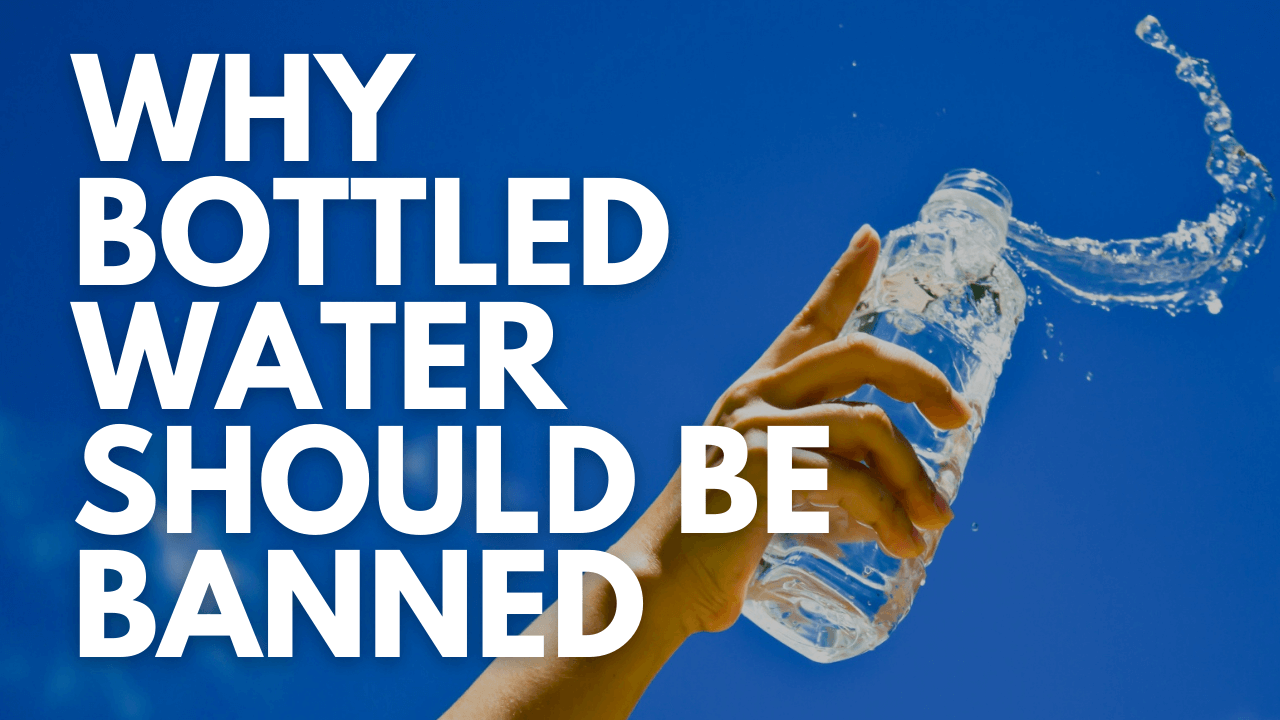Plastic water bottles serve a good purpose - convenience.
But many factors may cause you to look for a different alternative instead.
As time goes on, research shows that microplastics are presenting more problems in drinking water all around the world.
Bottled Water Is Often an Uninformed Purchase
While we can sometimes be led to believe that we have just purchased a far superior product that has been freshly bottled at the foot of a spring, or “the world’s purest water,” are we?
Many consumers think they are buying high-quality bottled water, but all too often, the reality behind these products reveal themselves to be quite different from what was advertised!
Numerous brands are just filtering local tap water and bottling it.
Popular brands may often be selling you water contaminated with microplastics and toxic chemicals from their plastic packaging.

Plastic Packaging Comes With Downsides
Most bottled water is sold in plastic or polyethylene terephthalate (PET).
These types of plastics are hormone and endocrine disruptors.
In addition, they contain phthalates that seep into your water, especially when stored at high temperatures for an extended period - even when there’s a BPA free certification on the bottle!
 Microplastics Found in over 90% of Bottled Water
Microplastics Found in over 90% of Bottled Water
The World Health Organisation launched a health review after they found microplastics were found in 93% of bottled water.
Researchers discovered that the plastic fibers found in bottled water were twice as high as tap water.
93% of the 11 bottled water brands sampled all showed traces of microplastics.
259 bottles of water from 11 brands across nine countries were analysed and tested. They were bought in China, Brazil, India, Indonesia, Mexico, Lebanon, Kenya, Thailand and the U.S.
Of all the bottles tested, only 17 were found to be free of plastic. On average, each litre sold contained 325 pieces of microplastic, including polypropylene, nylon, and polyethylene terephthalate.
Bottled water has been found to contain over 24,000 chemicals, 16 of which prove to inhibit estrogen and androgen receptors up to 90%
In simple terms, chemicals mess with hormones.
What Are Endocrine Disrupting Chemicals?
Endocrine-disrupting chemicals (EDCs) are man-made compounds interfering with hormone signalling and negatively affecting human health. Recent reports provide evidence for the presence of endocrine-disrupting chemicals in commercially available bottled water.
BPA Toxins in Bottles
When you put hot water in a BPA bottle, chemicals are 55 times worse.
Bottled Water Isn’t As Pure As You May Think
— Dr. Rhonda Patrick (@foundmyfitness) March 16, 2018
Approximately 1 million plastic bottles are bought every minute and less than 50% of those are recycled. #ReduceReuseRecycle https://t.co/ypswKlzSQ6
Environmentally Unfriendly
Another major downside to plastic water bottles is that far too many people don’t recycle them.
A water bottle can take up to 450 years to decompose, which means further damage to the earth’s soil, air and water.

Filtered Water
Many people are unaware that bottled water brands may actually just be tap-water, filtered and packaged in convenient plastic bottles for you to buy at your local supermarket.
Microplastics exist in our normal tap water too, but it's not as big of a problem as bottled water and much lesser known.
Filtered water is actually much better for you and will save loads of money if you use something as simple as a benchtop or undersink water filter to make your own water every day. This way, you can use glass, stainless steel, or whatever type of bottle you like.
There are plenty of reasons to filter your water with fluoride being more of a concern as time goes on.
Check out more of the articles in the learning centre and be sure to contact us if you have any questions or would like to upgrade the water experience at your house.
As always, feel free to contact us if you have any questions, we’d be delighted to help out.








